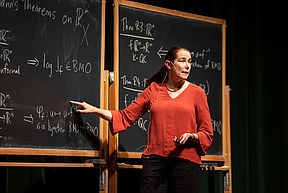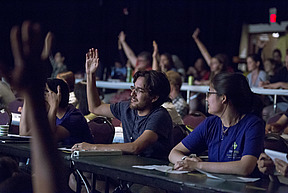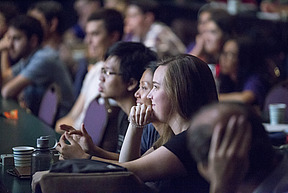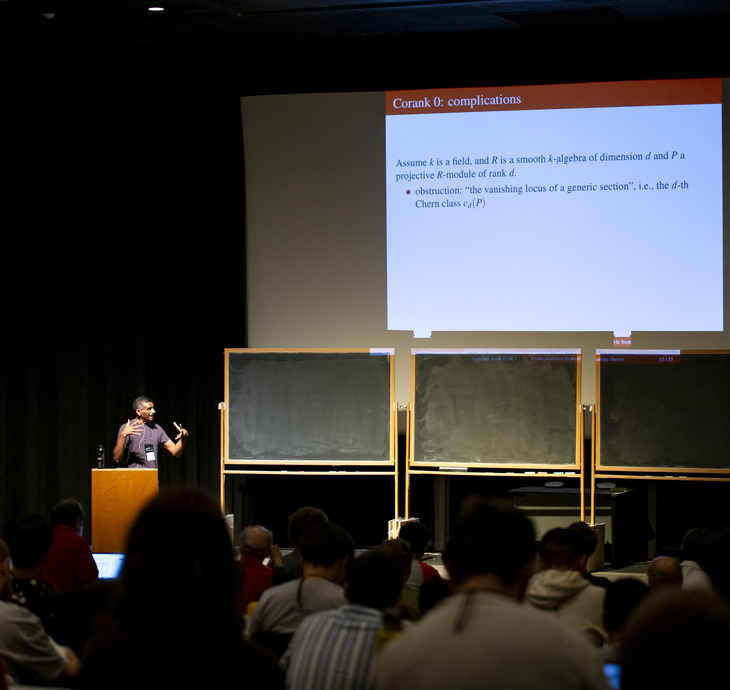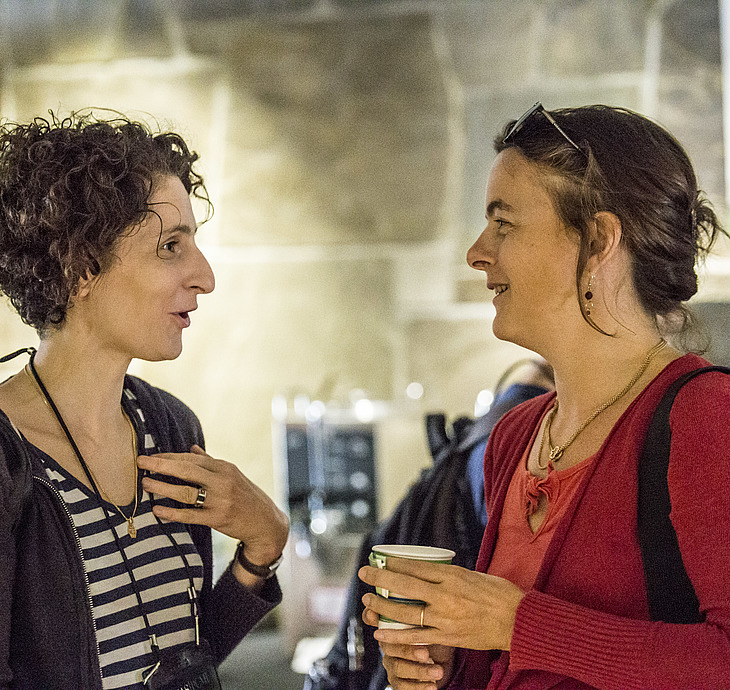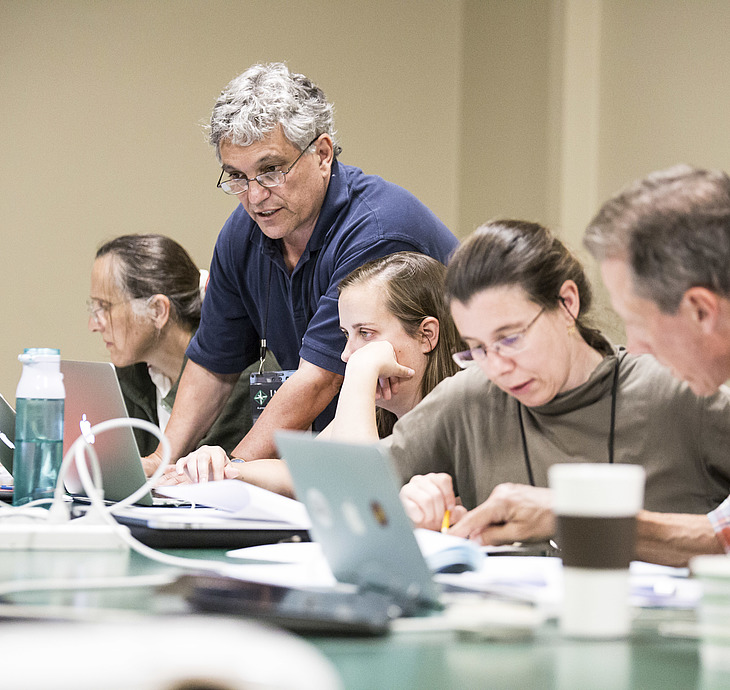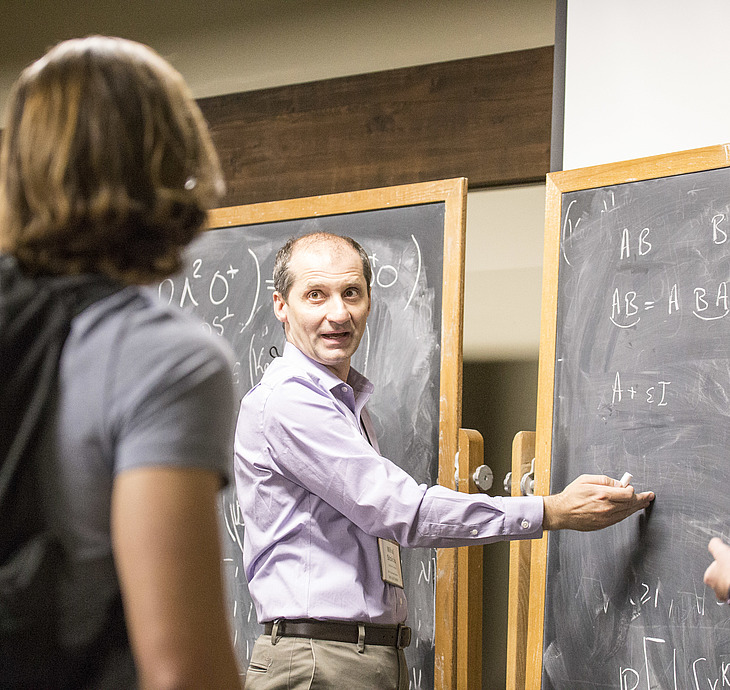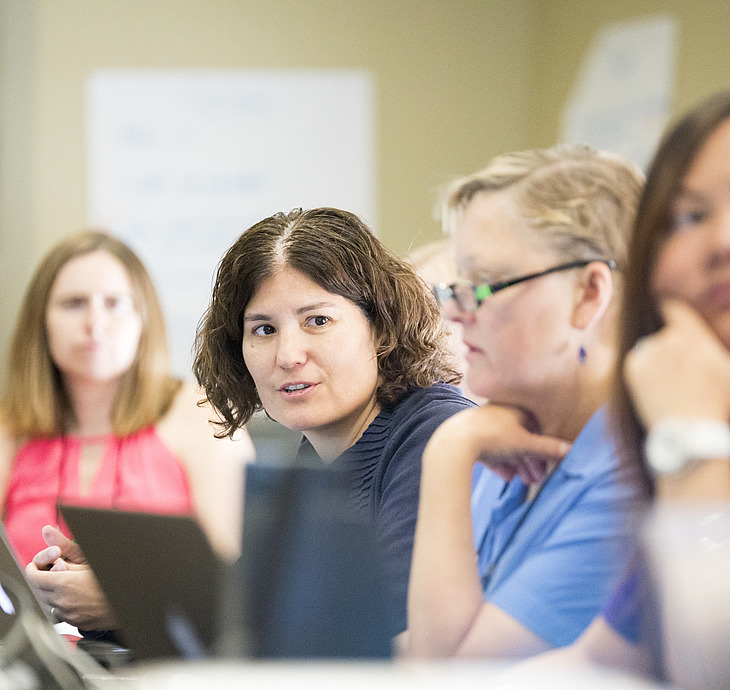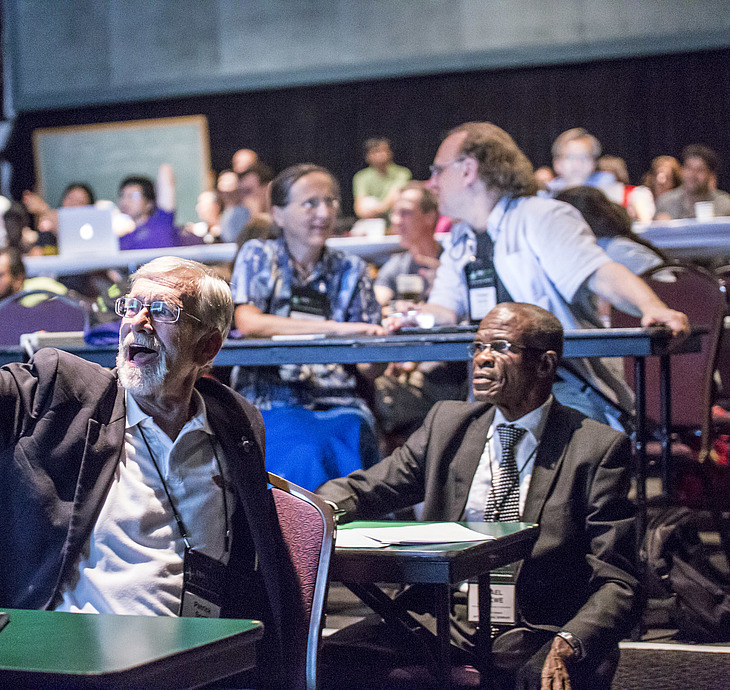
PCMI 2024 Graduate Summer School
The Graduate Summer School at PCMI consists of a series of several interwoven minicourses on different aspects of the main research theme of that summer. These courses are taught by leading experts in the field, chosen not only for their stature in the field but their pedagogical abilities. Each minicourse comprises three to five lectures. These minicourses vary in level of preparation needed, and the schedule is structured so there are good opportunities for students just entering the field as well as courses suitable for more advanced students. Each course is accompanied by a daily problem session, structured to help students develop facility with the material.
The GSS takes place within the broader structure of PCMI, so there are many researchers at all levels in the field in attendance, as well as participants in the other PCMI programs. This provides an outstanding way for graduate students to get to know leaders in their field and to interact with them in a leisurely way. There are also numerous group activities which allow participants in the GSS to interact with people in other groups, including formal and informal social events, and the PCMI Experimental Math Lab, which brings together small groups of participants to work on accessible and open-ended problems. Graduate students have many opportunities to get good advice about career paths after they complete their PhDs, and can meet mathematicians who are working at a wide variety of institutions, from top research centers to undergraduate-focused colleges.
There are three graduate minicourses scheduled each day (Wednesday afternoons are free) and problem sessions accompanying each minicourse. Participants may attend talks from the other programs as they see fit.
The 2024 Program: Motivic Homotopy Theory
Organizers: Benjamin Antieau, Northwestern University; Marc Levine, Universität Duisberg-Essen; Oliver Röndigs, Universität Osnabrück; Alexander Vishik, University of Nottingham; and Kirsten Wickelgren, Duke University
Motivic homotopy theory arose out of the work of Morel and Voevodsky in the 1990s and since then has developed into both a powerful tool for understanding many arithmetic aspects in algebra and algebraic geometry, as well as being a fascinating generalisation of classical homotopy theory with an active development in its own right.
The 2024 GSS on motivic homotopy theory will give participants an introduction to some aspects of motivic homotopy theory as well as a taste of developments in other fields that have been influenced and enabled by motivic homotopy theory. Mini-courses will include: an introduction to unstable motivic homotopy theory, a study of characteristic classes in stable motivic homotopy theory, motivic homotopy theory in enumerative geometry, and a version of Weil conjectures in motivic homotopy theory, as well as courses on recent advances in arithmetic properties of local systems, fundamental problems in Galois cohomology of fields, and aspects of G-bundles in algebraic geometry.
Prerequisites: Students should have a basic knowledge of algebraic geometry, algebraic topology, and some homotopy theory. For some of the courses, a knowledge of Galois cohomology and étale cohomology will also be helpful.
The PCMI Summer Session will be held July 7-27, 2024.
